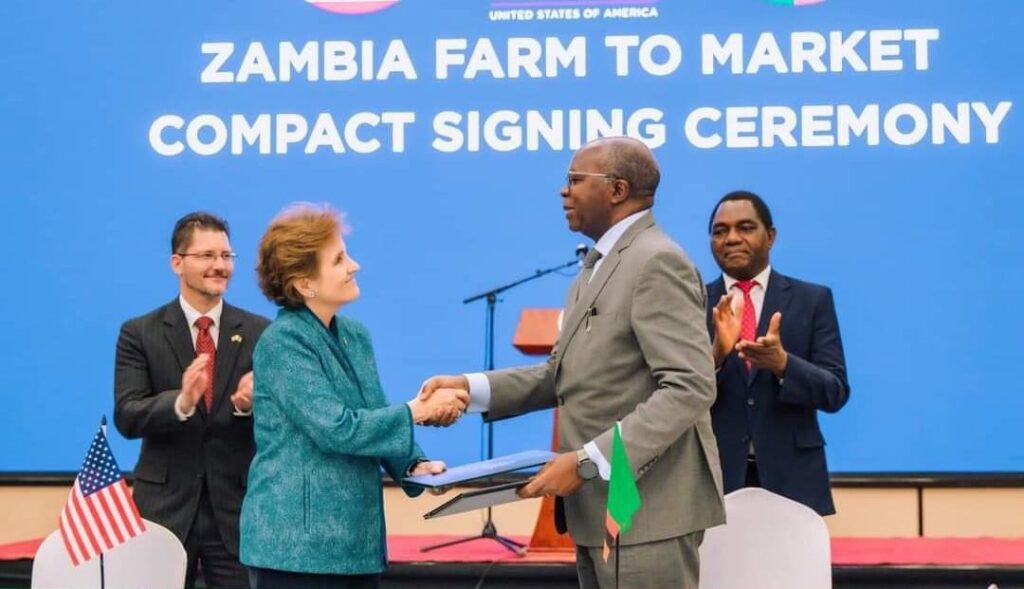Zambia and USA Sign $458 Million “Farm-to-Market” Compact to Boost Agriculture and Agro-Processing
The Governments of Zambia and the United States have signed the $491.75 million Zambia Farm-to-Market Compact, a partnership designed to strengthen Zambia’s agriculture and agro-processing sectors.
The compact, supported by $458 million from the Millennium Challenge Corporation (MCC) and an additional $33.75 million from Zambia, aims to address key challenges such as reducing transport costs for farmers, improving access to agricultural finance, and driving policy reforms to attract private investment.
During the signing ceremony, President Hakainde Hichilema hailed the compact as a landmark achievement in Zambia’s bilateral relations with the United States. “The signing of the second Millennium Challenge Compact today signifies another milestone in our strong partnership with the U.S. This initiative aligns with our goals of fostering food security, economic growth, and creating jobs, while also celebrating Zambia’s 60 years of independence,” said President Hichilema.
MCC CEO Alice Albright praised Zambia’s agricultural potential, stating, “The Farm-to-Market Compact will promote inclusive economic growth by helping smallholder farmers access commercial markets and improve agricultural resilience. This compact reflects our shared commitment to people-centered development and Zambia’s economic future.”
The Farm-to-Market Compact will focus on enhancing key agricultural corridors by improving road infrastructure and lowering the cost of transporting goods to market. It will also promote access to financing for investments in critical areas like electricity, irrigation, and processing equipment, helping farmers and agro-processors increase productivity.
Additionally, the compact includes support for mini-grids and cold-chain infrastructure, along with policy reforms to encourage private-sector involvement.
Zambia’s Minister of Finance and National Planning, Hon. Dr. Situmbeko Musokotwane, highlighted the consultative process behind the compact’s development. “This compact is the result of collaboration with various stakeholders, including government institutions, the private sector, civil society, and cooperating partners. It addresses three key constraints to Zambia’s growth: inadequate agricultural inputs, insufficient road infrastructure, and low access to reliable electricity,” he said.
The compact builds on the success of Zambia’s first MCC compact, which focused on improving water supply, sanitation, and drainage in Lusaka. That $355 million initiative provided clean water and sanitation services to thousands of households, reduced flooding, and enhanced the city’s drainage systems.



